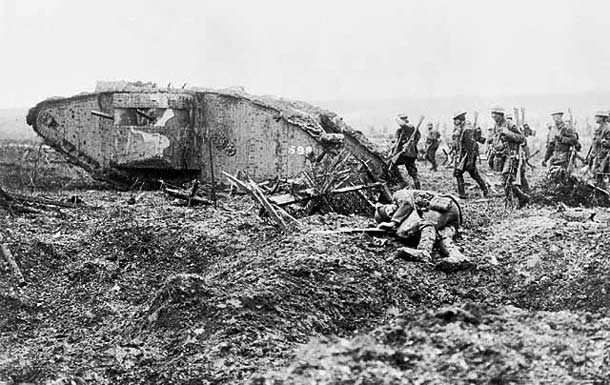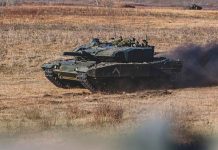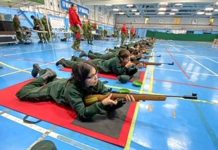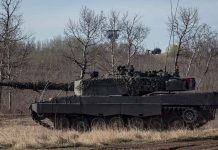OTTAWA – NEWS – Vimy Ridge – the name is hallowed in war.
Major-General Michel-Henri St-Louis, Acting Commander Canadian Army in a statement issued today says, “Brigadier-General Alexander Ross, who commanded the 28th (North-West) Battalion at Vimy, famously declared, when reflecting on the battle in 1967, that he had “witnessed the birth of a nation.”

“That is how Canadians would view the events of April 9-12, 1917 for decades. While the idea has served to unite us, the passage of time has brought fresh perspective.
While Vimy is notable as the first time all four divisions of the Canadian Corps fought together, much of the leadership behind it, as well as vital artillery and engineering supports, were British.
“It is also well understood today that the battle, despite having been won at horrific cost, had little impact on the ultimate outcome of the war.
“Strip away the complex politics that led to the First World War and we are still left with the many everyday people who were willing to sacrifice everything in the defence of our emerging nation. They deserve our undying respect and appreciation.
“A notable aspect of the Vimy Ridge story is that senior leaders, drawing on lessons learned from the Battle of the Somme and from the French at the Battle of Verdun, decentralized command in the field. In recognition of what individual soldiers were capable of, initiative and leadership were encouraged among the lower ranks.
“The echoes of that innovation are heard in today’s Canadian Army, where we look to all rank levels for new ideas and fresh perspectives.
“The success at Vimy was due to all arms working together. The logistical effort to move ammunition, food, and supplies to the front was enormous. Pioneers and engineers built roads, railways, and underground positions as well as supporting the assault of the ridge.
Communications allowed commanders to understand the situation the front. The medical system ensured that those who were wounded received the care they needed.
“Various innovations made the artillery more precise and effective in covering the infantry under a creeping barrage. They destroyed obstacles such as barbed wire and German positions, eliminated German artillery, and were ready to target German resupply and counter-attacks.
“Months of rehearsals at all levels ensured that that all arms team worked together effectively in the capture of Vimy Ridge.
“The human cost of Vimy included nearly 3600 Canadian lives, and 7000 wounded. Across the entire First World War, more than 600,000 Canadians served. Our total casualties, deaths and injuries, number greater than 200,000, making it the bloodiest conflict in our history.
“And in that moment and under unimaginable conditions, ordinary Canadian men showed extraordinary heroism. Four such men, earned the highest decoration for military valour, the Victoria Cross, at Vimy: Captain Thain MacDowell, Lance-Sgt. Ellis Sifton, Private William Johnstone Milne, and Private John Pattison.
“Statistics are inadequate to tell the full story of Vimy and the war, and our official histories don’t always capture the contributions of diverse Canadians. It is the many individual stories that truly bring it to life.
“Individuals like Private Jeremiah Jones, a member of the Royal Canadian Regiment and one of more than 1,300 Black men to serve in the war in the Canadian Expeditionary Force (CEF). While soldiers of No. 2 Construction Battalion, are the most prominent example of Black Canadian men participation in the war, a further 300 to 500 joined units of the CEF. About 100 of these men served on the front lines, including Private Jones.
“He volunteered to single-handedly attack a German machine gun position and succeeded, later directing surrendered enemy troops to deliver the weapon to his superiors.
“Pte Jones was recommended for a Distinguish Conduct Medal but the nomination was rejected. He was belatedly awarded the Canadian Forces Medallion for Distinguished Service in 2010.
“The heroism of many diverse Canadians, includes Indigenous peoples, like the story of Lance Corporal Henry Norwest, a Cree sniper hailing from Fort Saskatchewan, who was honoured with a Military Medal for his actions at Vimy. His citation notes that he showed “great bravery, skill and initiative…By his activity he saved a great number of our men’s lives.”
“Though it has been 105 years since the Battle of Vimy commenced, the sacrifices of all who came together in defence of this nation and its ideals remain vivid; not only those whose names we know, but also the many who rest in unmarked graves across Europe.
“Lest we forget.”






